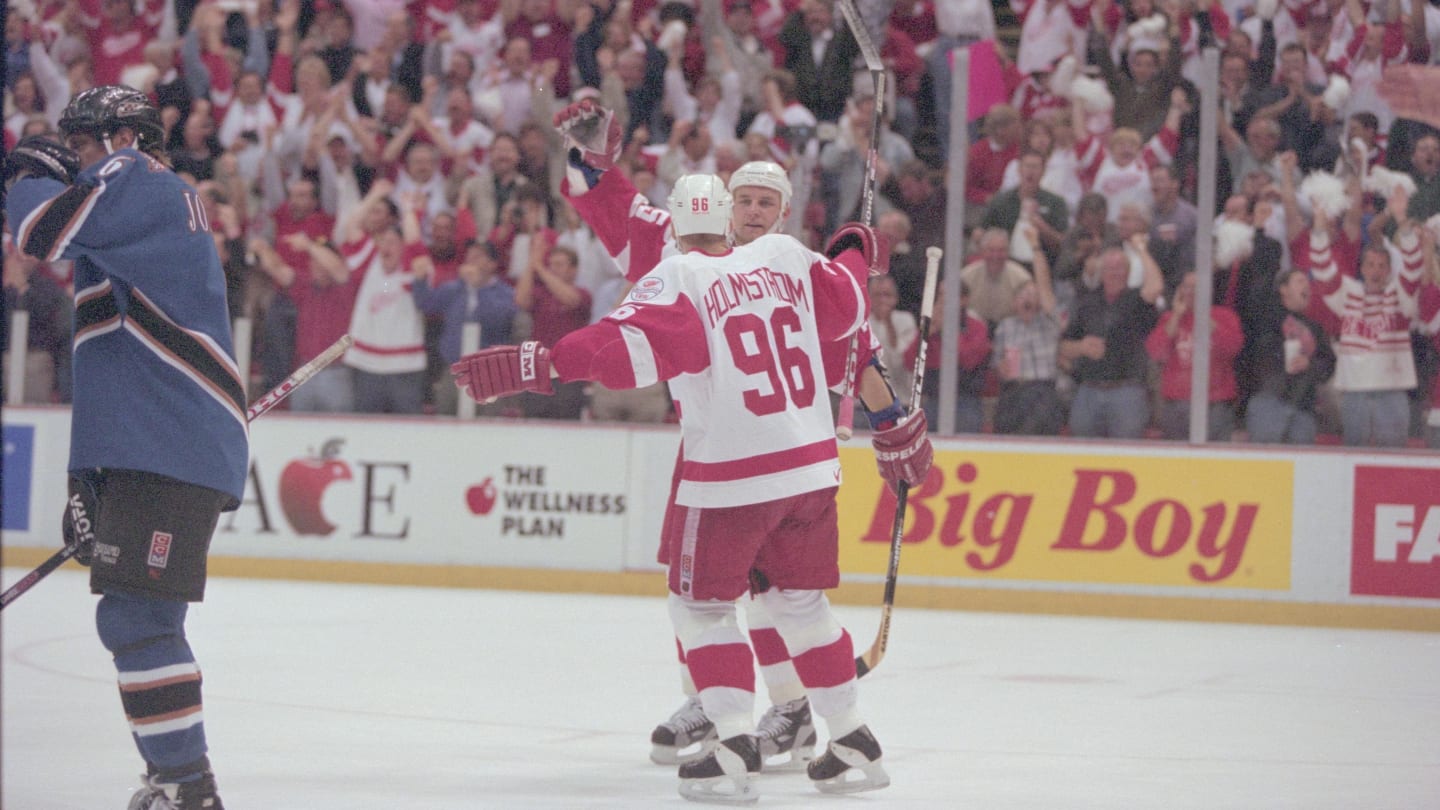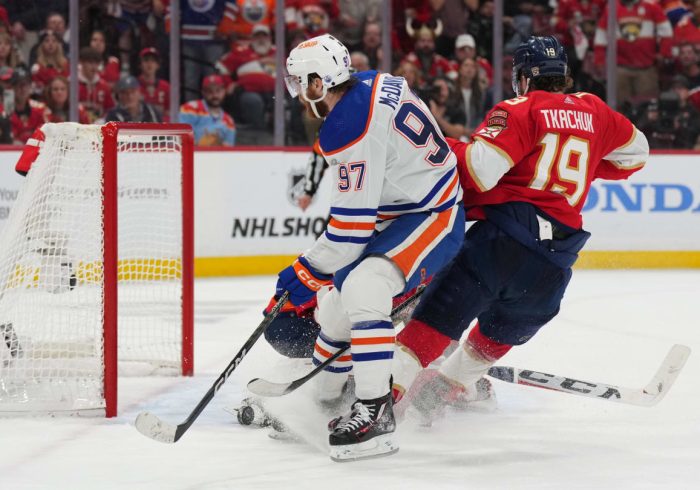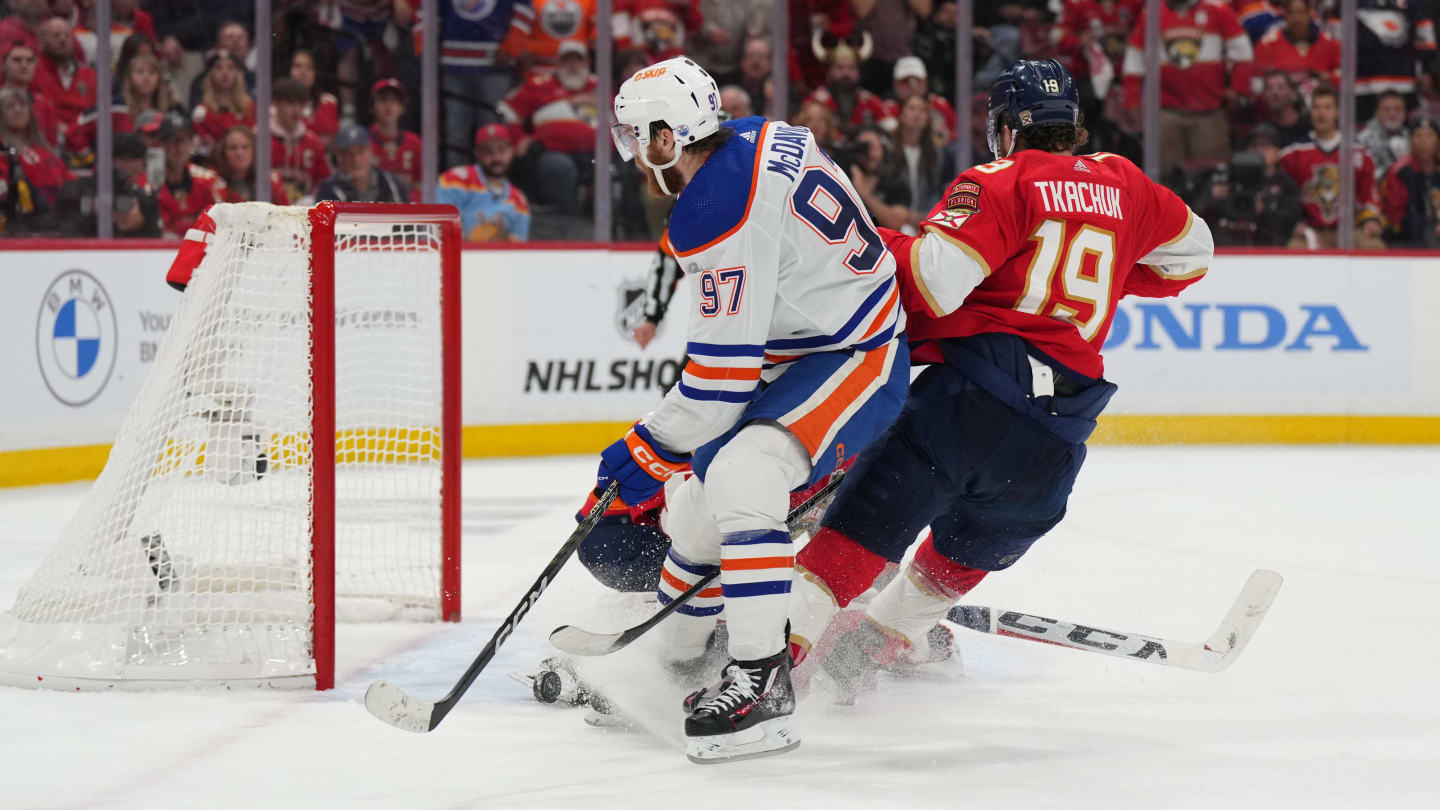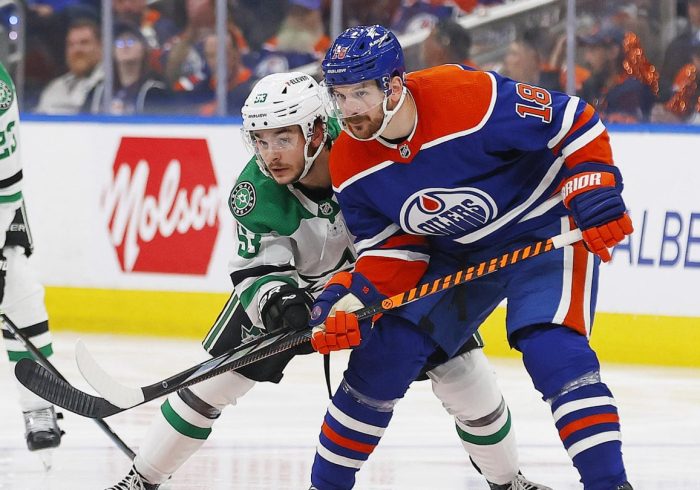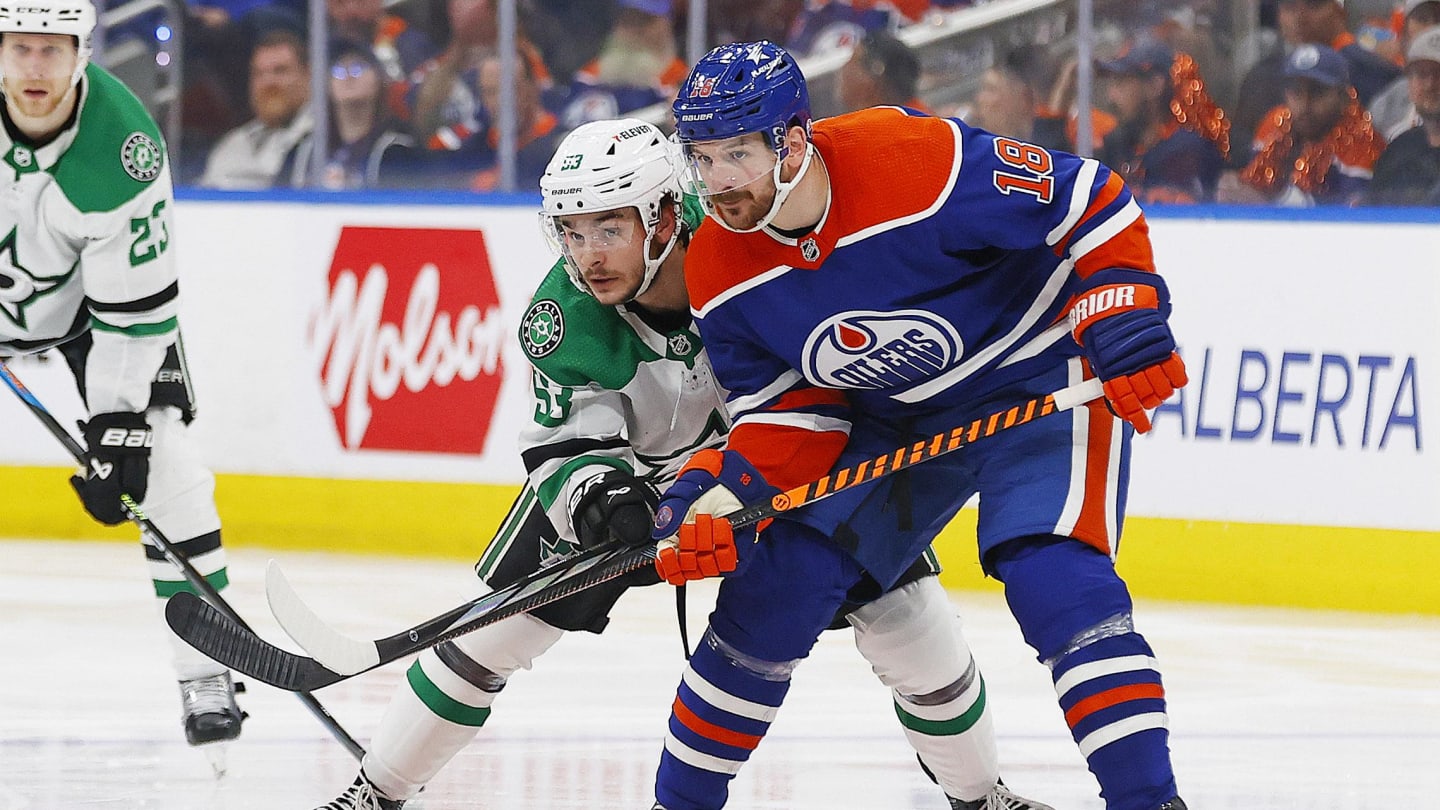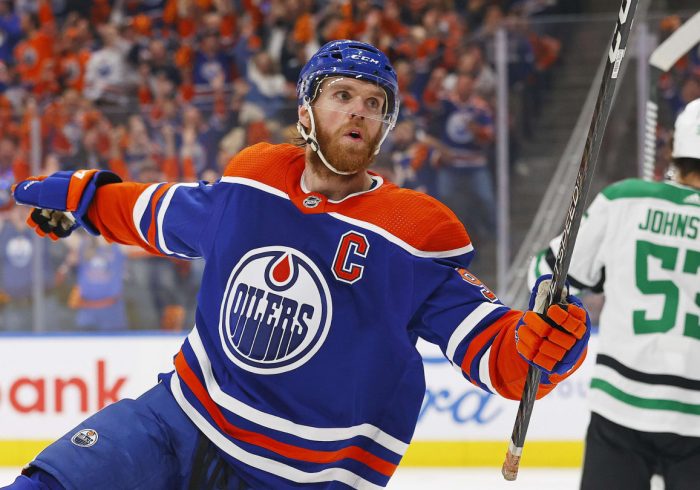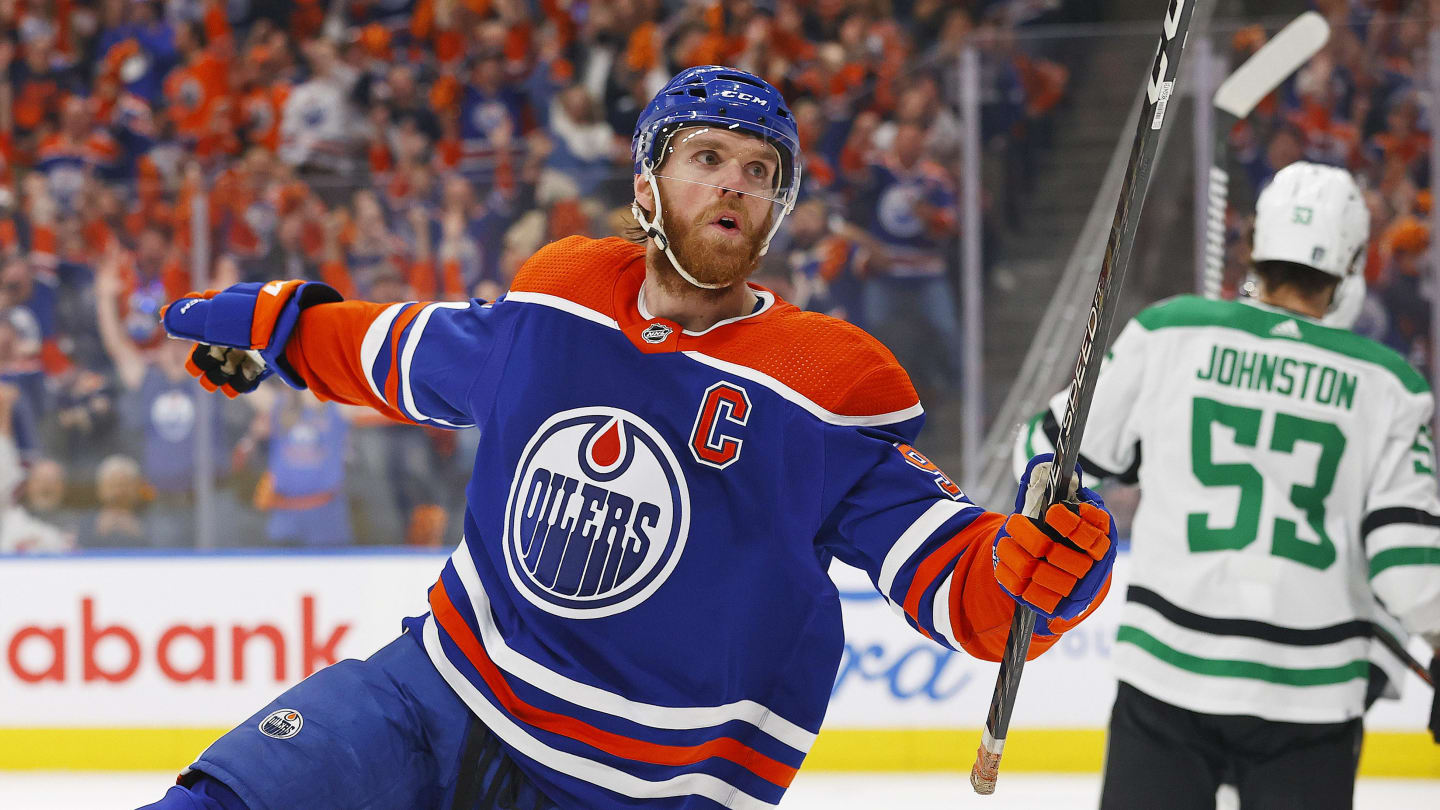The quickest path to hoisting the oldest trophy in North American sports history? Sweeping your opponent in four games.
There have been 20 sweeps in the Stanley Cup Final since the series was expanded to a best-of-seven series in 1939. The ’41 Boston Bruins were the first NHL team to do it, sending the Detroit Red Wings packing after four games.
There were five sweeps in the 1990s—the most sweeps in a decade since the 1940s—but there hasn’t been a Stanley Cup Final decided in four games since the Detroit Red Wings blanked the Washington Capitals in ’98.
Without further ado, here’s a full breakdown of every series sweep in Stanley Cup Final history:
The third best-of-seven Stanley Cup Final series in NHL history ended in a four-game sweep. Bruins goaltender Frank Brimsek allowed just six goals in four games, and Boston edged Detroit 3–2, 2–1, 4–2 and 3–1 to win its third Stanley Cup in franchise history.
Two years later, the Red Wings got their revenge. Detroit sent 16 goals past Brimsek, closing out the series with 4–0 and 2–0 shutouts. Red Wings stars Mud Bruneteau, Joe Carveth and Don Grosso all tallied three goals apiece in the series.
The Canadiens claimed their fifth Stanley Cup in franchise history by taking down the Chicago Black Hawks in four games. After winning the first two contests 5–1 and 3–1, Montreal edged Chicago 3–2 in Game 3 and hoisted the Stanley Cup after Toe Blake’s game-winning goal in overtime gave them a 5–4 win.
How does a team one-up themselves after winning the Stanley Cup in 1947? By sweeping the series the following year. The Maple Leafs, led by Harry Watson’s five goals, took down the Red Wings in four games. Toronto lost just one game during the 1948 playoffs and posted a goal differential of plus-18. Domination.
The Maple Leafs’ dynasty of the 1940s wasn’t done yet. Toronto scored exactly three goals in all four games, defeating the Red Wings 3–2, 3–1, 3–1 and 3–1 to hoist the Stanley Cup for a third straight year. Turk Broda manned the Leafs’ net and surrendered just five goals in four contests.
Detroit swept the Maple Leafs in four games in the 1952 semifinals and did the same in the Stanley Cup Final, beating Toronto 3–1, 2–1, 3–0 and 3–0 in a rather low-scoring series. Ted Lindsay, Gordie Howe, Tony Leswick, Metro Prystai, Marty Pavelich and Glen Skov all tallied three points apiece in the series. It was the first of three Stanley Cups that Hall of Fame goaltender Terry Sawchuk would win in Detroit.
After six sweeps in the first 14 best-of-seven Stanley Cup Final series, there was an eight-year gap between sweeps in a stretch that featured two Game 7s. The Canadiens crushed the Maple Leafs in 1960, however, outscoring them 15–5 to hoist their fifth straight Stanley Cup, a streak that still stands as the most consecutive titles for a single team in NHL history.
The NHL expanded from six to 12 teams in 1967, but that didn’t stop the Canadiens from punching their ticket to another Stanley Cup Final. The St. Louis Blues—one of those six expansion franchises—put up quite the fight but lost all four games in heartbreaking fashion by one goal, losing 3–2, 1–0, 4–3 and 3–2. Two of those four games went into overtime.
The Blues fought their way to a rematch in the 1969 Stanley Cup Final, but they fell short in four games once again. Canadiens goaltender Rogie Vachon, who was inducted into the Hall of Fame in 2016, held the Blues to three goals in four games, stopping 104 of the 107 shots he faced.
Boston snapped an 11-year drought and defeated the New York Rangers and Chicago Black Hawks to advance to its first Stanley Cup Final since 1958. The Bruins made the most of it, blowing out the Blues 6–1 in Game 1 and 6–2 in Game 2 before wrapping up the series in Games 3 and 4 at the Boston Garden. Phil Esposito led the Bruins with eight points (two goals, six assists) in the series.
The 1975-76 Canadiens won 58 games and tallied 127 points in the regular-season standings, the fifth-most in NHL history. They didn’t mess around in the playoffs, either. Montreal swept the Black Hawks in the quarterfinals, beat the New York Islanders in five games in the semifinals and claimed its 19th Stanley Cup in franchise history after sweeping the Flyers.
Different opponent, same result. The Canadiens returned to hockey’s biggest stage in 1977 and once again swept their opponent, outscoring the Bruins 16–6 in the four games. Hall of Fame winger Guy Lafleur registered nine points (two goals, seven assists) in the Stanley Cup Final and won the Conn Smythe Trophy, given to the most valuable player of the playoffs.
Founded in 1972, the Islanders won their first Stanley Cup in franchise history in ’80 but didn’t stop there. They won it again in ’81, and in ’82 the Islanders earned their first Stanley Cup sweep. New York won Game 1 6–5 in overtime, and outscored the Canucks 12–5 the rest of the series to secure the three-peat.
Coach Al Arbour and the Islanders were back in the Stanley Cup Final in 1983, and they followed the same game plan as ’82. The Islanders won all four games by multiple goals—2–0, 6–3, 5–1 and 4–2—to hoist Lord Stanley’s Cup for a fourth straight year. It was the first Stanley Cup appearance for Oilers youngster Wayne Gretzky. He would be back.
Gretzky must have learned what it takes in 1983 because he led the Oilers to championships in ’84, ’85 and ’87. In ’88, Gretzky tallied three goals and 10 assists to help the Oilers sweep the Bruins—but with an asterisk. Game 4 of the series at Boston Garden was delayed in the second period due to fog interfering with the game, and later suspended after the power went out. The score was tied 3–3 at the time. Game 4 was moved to Edmonton, where the Oilers won 6–3 and claimed the sweep.
The Penguins won the first Stanley Cup in franchise history in 1991 and were back in ’92 to face the Blackhawks. Pittsburgh scored twice in the third period of Game 1 to win 5–4, and edged Chicago 3–1, 1–0 and 6–5 in the final three games to finish off the sweep.
The Devils became the sixth non-Original Six team to win a championship when they swept the Red Wings in 1995. Neal Broten scored three goals and tallied three assists to lead the way for New Jersey, which closed out the series with resounding 5–2 victories in both Game 3 and Game 4.
The Panthers advanced to the Stanley Cup Final in just the third season in their existence, but the Avalanche—in their first season in Colorado since relocating from Quebec—spoiled the party. Patrick Roy allowed just four goals the entire series and held the Panthers scoreless for 103 minutes in Game 3, which the Avs won 1–0 in triple overtime. Joe Sakic won the Conn Smythe Trophy after tallying five points (one goal, four assists) in the series.
The 1996–97 Red Wings won their first Stanley Cup Final since ’55, taking down the Flyers in four games—4–2, 4–2, 6–1 and 2–1. Sergei Federov led the way for Detroit’s “Russian Five” with six points (three goals, three assists) in the series.
The 1997–98 season marked the fourth straight Stanley Cup Final to end in a sweep. Entering the upcoming matchup between the Panthers and Oilers, there hasn’t been a Stanley Cup Final sweep since. The Red Wings won the first three games of the series by one goal—2–1, 5–4 and 2–1—before winning 4–1 in Game 4 to finish off Washington.
